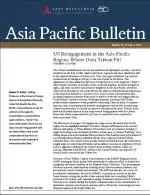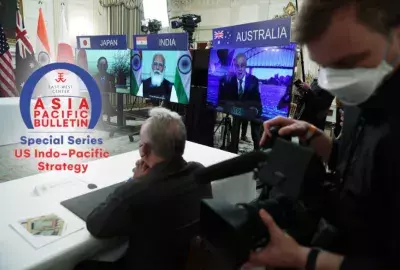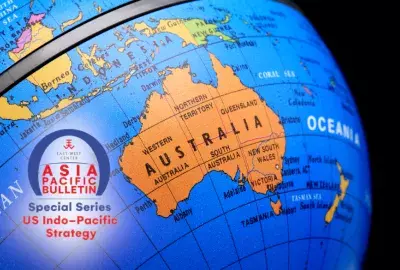Error message

The Obama administration's broad and multifaceted diplomatic, security, and other initiatives in the Asia-Pacific region collectively represent the most significant shift in the regional dynamics of recent years. They also augur continued, top-priority attention that Washington will pay to the Asia-Pacific in the future. The significance of these initiatives has been overshadowed to some degree by China's often clumsy treatment of security issues, territorial disputes, maritime navigation rights, and other sensitive issues with its neighbors in the Asia-Pacific. However, China's boorish behavior has ironically had the effect of underlining the importance of the American initiatives. Concerns over China's actions and intentions have prompted regional countries from north to south to welcome and engage with the United States' renewed activism. While governments across the Asia-Pacific position their countries to work positively with rising China in areas of common interests, they are preparing for possible contingencies that involve domineering Chinese assertiveness. A notable exception to this pattern has been Taiwan. It has shown little public interest in any steps toward reengagement with the United States that would compromise its top focus on reassurance and cooperative interaction with China. Robert G. Sutter explores Taiwan's China policy in the context of US reengagement in the Asia-Pacific region. The views expressed in this publication are those of the author and do not necessarily reflect the policy or position of the East-West Center or any organization with which the author is affiliated. |
The Obama administration's broad and multifaceted diplomatic, security, and other initiatives in the Asia-Pacific region collectively represent the most significant shift in the regional dynamics of recent years. They also augur continued, top-priority attention that Washington will pay to the Asia-Pacific in the future. The significance of these initiatives has been overshadowed to some degree by China's often clumsy treatment of security issues, territorial disputes, maritime navigation rights, and other sensitive issues with its neighbors in the Asia-Pacific. However, China's boorish behavior has ironically had the effect of underlining the importance of the American initiatives. Concerns over China's actions and intentions have prompted regional countries from north to south to welcome and engage with the United States' renewed activism. While governments across the Asia-Pacific position their countries to work positively with rising China in areas of common interests, they are preparing for possible contingencies that involve domineering Chinese assertiveness. A notable exception to this pattern has been Taiwan. It has shown little public interest in any steps toward reengagement with the United States that would compromise its top focus on reassurance and cooperative interaction with China. Robert G. Sutter explores Taiwan's China policy in the context of US reengagement in the Asia-Pacific region. The views expressed in this publication are those of the author and do not necessarily reflect the policy or position of the East-West Center or any organization with which the author is affiliated. |







